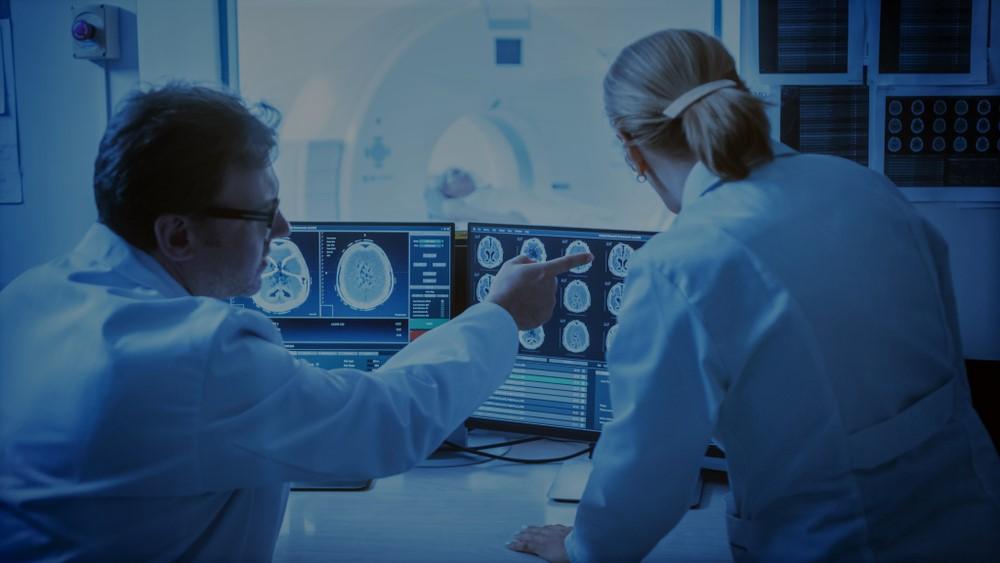Revolutionizing Healthcare: The Indispensable Role of Artificial Intelligence in Medical Imaging


In recent years, artificial intelligence (AI) has emerged as a transformative force across numerous industries, and the field of medical imaging is no exception. Leveraging the power of machine learning algorithms, AI has revolutionized the way healthcare professionals analyze and interpret medical images, providing a plethora of benefits to doctors, patients, and hospitals alike. This article delves into the remarkable impact of AI in medical imaging, exploring its potential to enhance healthcare outcomes,empower medical practitioners, and optimize hospital services. Furthermore, we shed light on the crucial role of accurately annotated data in building reliable machine learning models for medical imaging.
Enhancing Healthcare Outcomes
AI in medical imaging holds immense potential for improving healthcare outcomes. By rapidly analyzing vast amounts of medical image data, AI algorithms can detect anomalies, identify patterns, and assist radiologists in making accurate diagnoses. This advanced technology enhances the precision and speed of medical image interpretation, leading to earlier detection of diseases, such as cancer, cardiovascular conditions, and neurological disorders. Timely detection translates into better patient prognoses and increased chances of successful treatment interventions.
Benefiting Doctors and Patients
The integration of AI into medical imaging offers numerous benefits to both doctors and patients. Firstly,AI algorithms can act as valuable decision-support tools for radiologists, assisting them in detecting subtle abnormalities that may be overlooked by the human eye alone. This collaboration between AI and human experts leads to improved diagnostic accuracy and reduced diagnostic errors, ultimately enhancing patient care.
Secondly, AI algorithms can help streamline the radiology workflow by automating routine tasks, such asimage segmentation and annotation, enabling radiologists to focus on complex cases and critical decision-making. This automation not only saves time but also reduces the burden on radiologists, enhancing their overall efficiency and job satisfaction.
For patients, the integration of AI in medical imaging translates into shorter waiting times for diagnoses, faster treatment initiation, and reduced healthcare costs. Rapid analysis of medical images facilitates prompt clinical interventions, thereby expediting the overall patient journey and improving patient satisfaction.
Improving Hospital Services
Hospitals play a critical role in adopting and implementing AI in medical imaging. AI technologies can help hospitals optimize their services by streamlining workflow processes, increasing operational efficiency, and enhancing resource allocation. For instance, AI algorithms can prioritize urgent cases, allocate resources based on severity levels, and optimize scheduling to minimize patient waiting times.
Moreover, AI-powered image analysis can contribute to population health management by identifying high-risk individuals and facilitating early interventions. By leveraging predictive analytics, hospitals can proactively address potential healthcare challenges and allocate resources accordingly, leading to more effective disease management and prevention strategies.
The Significance of Accurately Annotated Data
Accurate and well-annotated data is the foundation upon which reliable AI models for medical imaging are built. Annotated data involves labeling medical images with precise information, such as the presence or absence of abnormalities, anatomical structures, and disease classifications. High-quality annotated data enables AI algorithms to learn from diverse cases and make accurate predictions.
To ensure the creation of reliable machine learning models, healthcare organizations must invest in robust data annotation processes. This involves engaging expert radiologists to meticulously label medical images, adhering to standardized protocols and guidelines. The availability of comprehensive, annotated datasets not only facilitates the development of accurate AI models but also ensures their generalizability across diverse patient populations.
DataForce combines the expertise of experienced medical professionals, rigorously trained professional annotators, and a proprietary labeling platform that supports various formats of medical images, including DICOM. Our model offers the right balance of accuracy and cost for data science teams to build high-performance machine learning models with the lowest possible amount of data in the shortest possible amount of time. To learn more, please contact us here.
By Alex Poulis
Senior Director,
DataForce